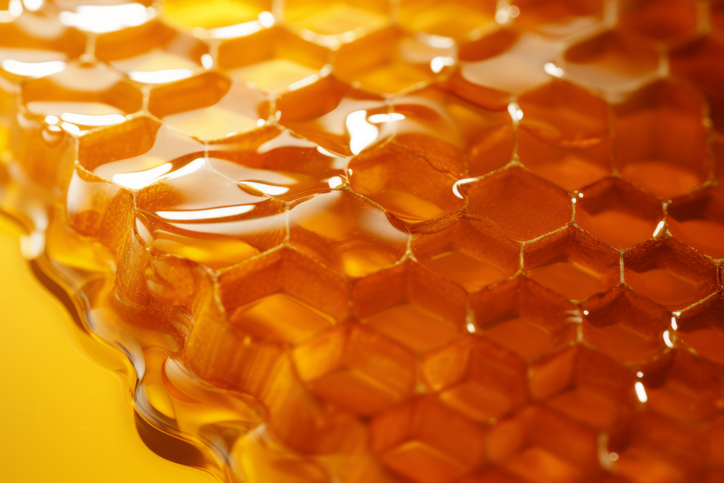Honey is more than just a sweetener; it’s a marvel of nature with a remarkable shelf life that has intrigued foodies, health enthusiasts, and home cooks alike. This blog post dives deep into the fascinating longevity of honey, explaining why it never spoils and how its crystallization process works.
The Short Answer: Forever
Simply put, honey lasts forever. Archaeologists have found honey in ancient Egyptian tombs dating back approximately 3,000 years, and it was still perfectly edible. This astonishing discovery underscores honey’s unique properties that prevent it from spoiling.
Why Honey Never Spoils
Natural Preservation
Honey’s longevity is due to several natural factors:
- Low Water Content: Honey is hygroscopic, meaning it has a low moisture content. Bacteria and microorganisms need water to thrive, but honey’s composition doesn’t provide the necessary environment for these spoilage agents.
- Acidity: Honey is slightly acidic with a pH between 3.2 and 4.5. This acidity further inhibits the growth of bacteria and yeast.
- Hydrogen Peroxide: Honey contains an enzyme called glucose oxidase, which produces hydrogen peroxide when it comes into contact with water. This acts as a mild antiseptic.
Crystalization: A Sign of Quality
While honey never spoils, it can crystallize over time. However, this isn’t a sign of spoilage but rather an indication of its quality and purity. Here’s what you need to know about crystallization:
- Types of Crystals: Honey can form large, almost crunchy crystals or very fine crystals similar to creamed honey.
- Quality Indicator: Honey that crystallizes is often of higher quality. Honey that never crystallizes is generally either highly processed, thus losing its natural health benefits, or adulterated with substances like corn syrup.
- Fructose vs. Glucose: The rate at which honey crystallizes depends on its fructose and glucose levels. Honeys with higher fructose content, such as Tupelo and sage honey, crystallize slowly. Meanwhile, honey with higher glucose content, such as alfalfa, dandelion, and cotton honey, crystallizes quickly and forms smaller crystals.
The Science Behind Crystalization
Crystallization occurs because honey is a supersaturated solution, meaning it contains more sugar than can stay dissolved. Over time, the glucose in the honey separates from the water and forms crystals.
Factors Influencing Crystallization:
- Temperature: Cooler temperatures accelerate crystallization. Store your honey in a warm place to slow down the process.
- Purity: Pure, raw honey crystallizes faster than processed honey. This is due to the presence of microscopic particles like pollen and beeswax, which act as nuclei for crystals to form.
- Water Content: Honey with a higher water content will crystallize more slowly.
How to Decrystallize Honey
If crystallized honey isn’t your preference, you can easily return it to its liquid state without compromising its quality:
- Warm Water Bath: Place the jar of honey in a warm water bath (not boiling) and stir until the crystals dissolve.
- Avoid Microwave: Microwaving honey can destroy its beneficial enzymes and alter its flavor, so it’s best to avoid this method.
Storing Honey for Longevity
To maximize the longevity of your honey:
- Keep It Sealed: Store honey in a tightly sealed container to prevent it from absorbing moisture from the air.
- Avoid Refrigeration: Refrigeration accelerates crystallization. Instead, store honey at room temperature in a cool, dark place.
- Use Glass Containers: Plastic can leach chemicals into honey over time. Glass jars are a better option for long-term storage.
The Health Benefits of Honey
Honey is not just a sweet treat; it also offers numerous health benefits:
- Antioxidants: Honey contains antioxidants that combat free radicals in the body.
- Antibacterial Properties: Due to its natural hydrogen peroxide content, honey can help heal wounds and act as an antibacterial agent.
- Soothing Effects: Honey is a natural remedy for sore throats and coughs.
Honey’s ability to last forever makes it a unique and valuable addition to any pantry. Its natural preservation properties and fascinating crystallization process only add to its appeal. Whether you enjoy it in its liquid form or appreciate the texture of crystallized honey, rest assured that this ancient wonder will remain a staple in kitchens around the world for generations to come.
For foodies, health enthusiasts, and home cooks, understanding the longevity and quality indicators of honey not only enhances your culinary endeavors but also enriches your appreciation for this extraordinary natural product.
Remember to store your honey properly, enjoy its myriad health benefits, and savor its timeless taste. Honey truly is a marvel of nature that stands the test of time.

